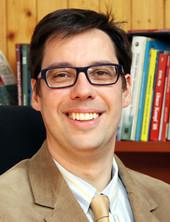Fachkonferenz
Details
Introduction
The civil society as a concept was revitalized in the 1980s. The reason for this rediscovery was related to the phenomenon of the social conflict which had escalated in the Central and Eastern Europe in the end of the so called
real socialism. Paradoxically, what liberal theorists named social citizenship actually emerged in the context of this historical period. The next period - the systemic transformation - was the time of decline of the social activism. Ten years later Polish researchers described this phenomenon as the “social non - movement” construct. This non-movement was a kind of social reaction brought about by the deregulation tendencies and the weakening of the modern state. The new phenomenon was in extreme opposition to the mass movement observed just fifteen - twenty years before.
The proposed conference will be devoted to the discussion of this “next step”, and next periods in the evolution of the civil society in Central and Eastern Europe. In particular the conference agenda will focus on the following subjects:
- The description of the evolution of self - organization in particular societies in Central and Eastern Europe;
- The description of barriers to the articulation of interests by the non - governmental actors: social movements and organizations;
- The description of the new kinds of social activism with special focus on social movements like urban movement, indignant movement, etc.
- New political phenomenon in relation to the national identity with special focus on the phenomenon of “flower”, and “colour” revolutions, and contemporary examples of political self-organization Maidan protest movement and the pro-Russian movement in Ukraine.
9.30 REGISTRATION
11.00 INTRODUCTION
dr Michał Nowosielski, Director of the Institute for Western Affairs and the head of the Poznań Branch of Polish Sociological Association
11.15 SESSION I:
CIVIL SOCIETY, CIVIC ACTIVISM AND THE PUBLIC SPHERE
(The session will be translated simultaneously)
Civic Engagement in Central and Eastern European Countries: A quantitative comparison
Jochen Roose, Willy Brandt Centre for German and European Studies
Pathogenesis of Polish Modern Public Sphere – Notes Towards an Investigation
Wiktor Marzec, CEU Budapest, Kamil Śmiechowski, Uniwersytet Łódzki
Civic Activism as a Source of Trust: the Case of Armenia
Valentina Gevorgyan, Turpanjian Center for Policy Analysis
Volunteering or Compulsory Community Activity: The evidence of Post-soviet Country
Irma Pranaityte, ISM University of Management and Economics
13.00 Coffee break
13.30
The Urban Movement in Poland. The case study of Poznań
Marek Nowak, Przemysław Pluciński, Institute of Sociology at Adam Mickiewicz University
Sociological Vacuum as an Obstacle to the Development of Civil Society in Poland? An analysis of the rhetoric of social sciences
Mikołaj Pawlak, University of Warsaw
14.30-15.30 Break
15.30 TWO PARALLEL SESSIONS
SESSION II: GROUPS, ACTIVISM AND IDENTITY
Steps forward, steps backward: communist legacy, European Union and feminist movement' organisations
Agnieszka Kwiatkowska, Szkoła Wyższa Psychologii Społecznej, Warszawa
Contemporary Ethos of Young Polish Intelligentsia and Its Role in the Public sphere. Presenta
tion of some preliminary conclusions
Piotr Kulas, University of Warsaw
Struggle for recognition or organized areas of activism?
Małgorzata Głowania, Institute of Sociology University of Warsaw
SESSION III: URBAN ACTIVISM
Where is demos in democracy? Performing democracy and the Polish protest against ACTA
Katarzyna Peplińska, Jagiellonian University
Between Social and Political– Civil Society Initiatives Active in Politics. Chosen examples from Czech Republic, Poland and Slovakia
Katarzyna Sobolewska-Myślik, Institute of Political Science Pedagogical University Kraków
Humanization of urban space - the case of Polish Slow Cities,
Justyna Kramarczyk, Institute of Sociology Adam Mickiewicz University
17.30
THE FINAL DISCUSSION, AND RECAPITULATION OF THE CONFERENCE
Moderation:
Michał Nowosielski, Institute for Western Affairs
Piotr Matczak, Institute of Sociology Adam Mickiewicz University




